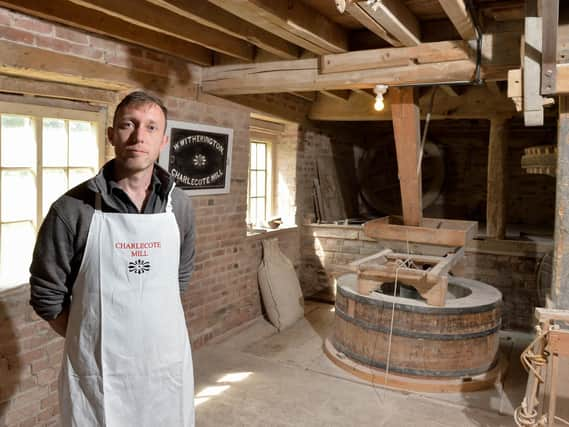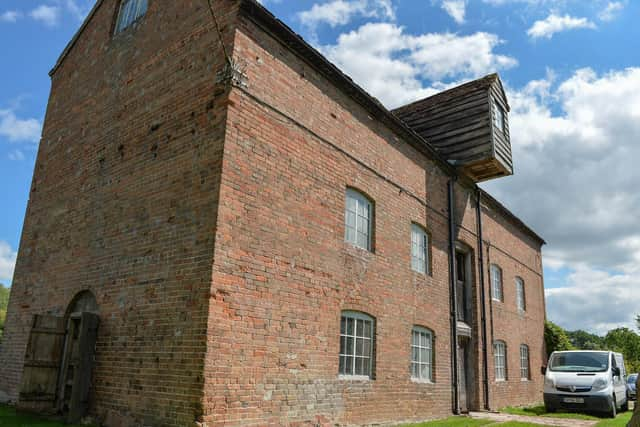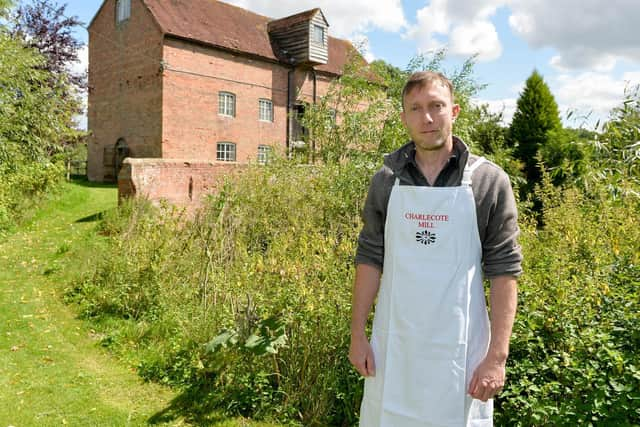How a water mill near Warwick that is fighting closure is now working around the clock to meet the huge demand for flour during lockdown


One of Britain’s last water mills which is fighting closure is working around the clock to meet the huge demand for flour as millions turn to baking during the lockdown.
Grade II listed Charlecote Mill in Hampton Lucy dates back to 1068 and was mentioned in the Domesday Book.
Advertisement
Hide AdAdvertisement
Hide AdIt is one of only ten commercial mills still operating in the country and normally produces around 70 tonnes of flour a year.


But since the coronavirus lockdown, there has been a spike in demand as people turn to home baking and now the mill is working flat out to more than double production.
Demand has been so fierce, miller Karl Grevatt has even been abused and offered bribes to keep customers supplied with flour.
Mr Grevatt, 38, said: “Pretty much as soon as loo rolls went out of the news it became apparent that flour was going to take their place.
Advertisement
Hide AdAdvertisement
Hide Ad“Who would have known that flour would become the must-have ingredient, pretty much above everything else?


“At the moment I am carrying 1,000kg – the maximum my van will take – on every single delivery.
“On top of that I would normally deliver perhaps 80 small bags a week to local shops.
“I’m usually milling ten tonnes every eight weeks and at the moment I’m milling ten tonnes in about three weeks. The demand has just grown far beyond the capacity of the building and the mill. It’s turned into a seven-week waiting list.
Advertisement
Hide AdAdvertisement
Hide Ad“I’ve got inquires from all over the UK and even had one from Turkey. It’s just been quite baffling really.”
Mr Grevatt, who has run the mill for eight years after taking over the lease in 2012, added: “Believe it or not, I have had a fair amount of abuse, attempted bribes and guilt trips from people who think I should be able to supply them with flour immediately.
“I’m trying to supply the local community and we’re now relying on the smaller, traditional mills to fill the gap now when the commercial mills can’t supply, and this is up and down the country.
“It’s all the traditional mills who are doing their bit, trying to supply the local community at a very hard time. They’re usually run by volunteers and they do it for the love of doing it, not for profit.”
Advertisement
Hide AdAdvertisement
Hide AdThree years ago the mill was under threat from closure over controversial plans to deepen the river which flows past.
The Avon and Navigation Trust set out plans to deepen the river which powers the mill as part of a £650 million plan to boost tourism.
The plan would involve creating a passable river route along the 12 miles between Stratford-upon-Avon and Warwick to re-join the Grand Union Canal.
This would be achieved through increasing water depth and installing locks along the River Avon at the back of the mill in Hampton Lucy.
Advertisement
Hide AdAdvertisement
Hide AdMr Grevatt said: “’To make this stretch of river navigable the watercourse will need to be deepened and altered and here lies the problem.
“If the water levels are adjusted and the water level is increased below the mill this prevents the water wheels being able to turn.
“Under the existing proposal the water level will increase by about two feet, which is enough to prevent the mill from running.
“Increasing the water level will effectively put a brake on the system’s operation and increase the risk of flooding.”
Advertisement
Hide AdAdvertisement
Hide AdThe mill, which is the only one of its kind in Warwickshire, operates a two-wheel system with a high take of water to the rear and low take to the front.
There are now less than 100 water mills left in the country with only ten producing flour commercially.
Stratford-upon-Avon District Council is still to make a final decision on the scheme leaving the future of the mill in the balance.